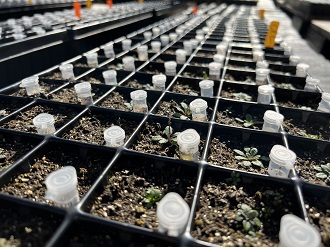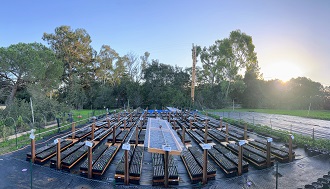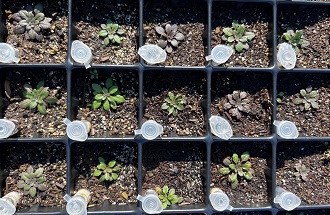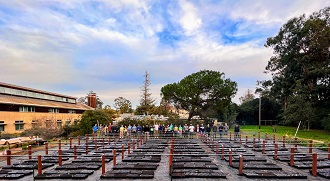About the department:
My group’s home is the Dept. of Plant Biology and Global Ecology of the Carnegie Institution for Science at Stanford. I am also Assistant Professor (by courtesy) at Stanford’s Biology, where I teach and mentor wonderful PhD students. Carnegie’s mission is to support exceptional ability and passion and give scientists generous financial independence to pursue bold research questions. This allowed me to start my lab just months after finishing my PhD. Our department is well known on campus for its “comunidad”, collaborative nature, and Friday afternoon seminars and garden BBQs!
About the research:
My main aim is to understand whether and how plants will evolve to keep pace with climate change. This leads to a number of evolutionary questions: how does natural selection shape genome-wide variation in natural populations, how does it vary across climates, what is its architecture, and what are the limits in adaptation to different climates. We use Arabidopsis thaliana as a model system, as this plant is broadly distributed, shows adaptations in life histories and ecophysiological traits, and as a model system, allows us to work with tools and ideas in evolutionary ecology, quantitative and population genetics, geostatistics, and molecular biology. Our studies often involve computational genomic methods and field experiments under different climates, where we aim to measure the effects of standing variants on fitness traits or study the temporal responses of populations leading to adaptation or demographic extinction.
What has been the biggest challenge as a new PI so far?
Managing time! So far my approach (not sure how successful this is!) is to block one entire day per week just for my own projects, two days for one-on-one meetings with lab members, and two for spontaneous meetings for collaborations, other tasks, talks, etc. (and if possible, delegate administrative work to supporting staff).
Are you recruiting? If so, how do you/ will you choose new lab members?
Yes, at all levels! I am building a pretty multidisciplinary lab to tackle evolutionary adaptation of species (or the lack of it) in response to climate change. I aim to find scientists with a deep curiosity for nature, who at the same time are mission-oriented. Whether you are a geneticist, evolutionary biologist, ecologist, or computer scientist, there is a role to play. Every kind of mind and expertise is necessary to address such a huge question.
When was your first Evolution Meeting, and how did it affect your career?
My first Evolution meeting was 2016 in Austin — it was probably one of my favourite meetings, and one of the first times that I was exposed to the amazing Evolution-community in North America. Coming from Europe for that event was amazing, and I used the trip to visit wonderful labs in the West coast, where I ended up establishing my own group. This was probably career changing.
Are you involved in evolution outreach? Tell us about it.
During COVID I have only managed to do some virtual outreach, joining calls with young students to tell them what it means to be an evolutionary biologist. I especially enjoy when these are in Spanish, as I think language is an important access barrier to STEM for many highschoolers. Now with our lab we are planning several live events, including guided visits to our field station where we are running evolution experiments under different climate simulations.
What is your favorite app?
Google Doc + Paperpile combo! There is no other way to write collaborative papers!
What one piece of advice would you give to a starting graduate student?
Read, read, read. Our work stands on the shoulders of giants, that is, most of what we build is upon what is known. One of the best ways to begin crafting your dissertation is either identifying a gap of knowledge in the field (or between fields), or identifying long-standing ideas that are unchallenged or have mixed evidence. I think graduate school is a wonderful time when you have a finish line far far down the road, so you can really be curious, explore, and think deeply about the topics that most intrigue you.
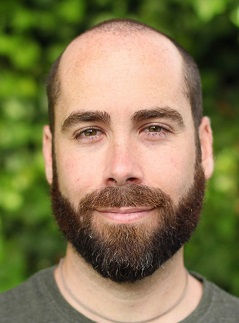 Moisés Expósito-Alonso
Moisés Expósito-Alonso